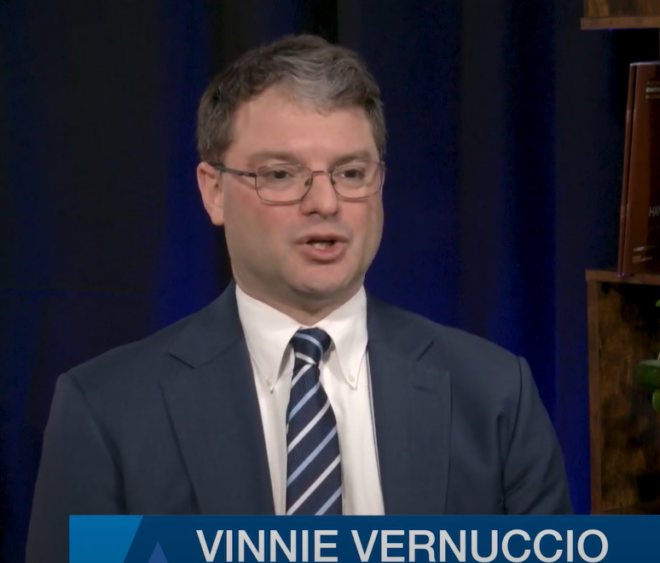Posts tagged labor peace agreements
The Cannabis Labor Crossroads: Historic Strikes, Labor Peace Agreements (“LPAs”), and What Comes Next
October 18, 2025 // The strikes at Exclusive Brands in Ann Arbor, Michigan, and at Green Thumb Industries’ RISE dispensary in York, Pennsylvania, now stand as the longest in the legal cannabis market. While both actions reflect shared themes—demands for better wages, a voice in the workplace, and concerns about bargaining conduct—they are unfolding in starkly different market contexts and with different strategic aims.
Update: Labor Peace Agreements, the Cannabis Industry, and the NLRB
September 23, 2025 // The intersection of LPAs, the cannabis industry, and the NLRB presents a legal landscape marked by uncertainty and rapid change. As states continue to require LPAs as a condition of licensure, and as the NLRB remains without a quorum, employers and unions must navigate a patchwork of state regulations without clear guidance. Until federal legalization or NLRB functionality brings greater clarity, businesses should work closely with legal counsel to ensure compliance with state requirements while preparing for potential shifts in federal enforcement. Ultimately, the future of labor relations in the cannabis sector will depend on how courts, regulators, and industry participants respond to these unprecedented challenges.

Op-ed: Can Zohran Make NYC a Union Town Again?
September 9, 2025 // The new mayor could host big online unionization trainings with the Emergency Workplace Organizing Committee, as Bernie Sanders and Alexandria Ocasio Cortez have already done. If this led even a small fraction of Zohran’s 60,000-plus volunteers and over 6 million social media followers to start organizing their own workplaces—or to take a strategic job to unionize it—this could potentially generate thousands of new unionization campaigns. And were Mamdani to act upon our proposal to launch a broad Movement for an Affordable New York (MANY), then the pool of new potential workplace organizers would grow significantly.

Georgia’s Secret Ballots and Union Hypocrisy
March 14, 2024 // Unions are fine with conditions on taxpayer funding if it gives them an unfair advantage. They can’t credibly claim it’s wrong when states go the other direction and level the playing field for workers. Instead of believing the union fearmongering, more states should do what Georgia has done, and put workers’ rights ahead of union demands.
Commentary: The Georgia Model for Putting Workers’ Rights ahead of Union Demands
March 8, 2024 // The United Auto Workers’ endorsement of Joe Biden’s reelection was in large part payback for the president’s efforts to help organize southern automakers. The Biden administration has issued a slew of policies that will enable the UAW to make inroads at factories that have repeatedly rejected union representation. Most notably and recently, in its Cemex decision last August, the National Labor Relations Board made it easier for unions to ignore workplace elections while publicly intimidating workers into supporting unionization. Georgia is going in the opposite direction, putting workers’ rights ahead of union demands. It’s on the verge of enacting a law that would guarantee secret-ballot elections at automakers and parts manufacturers. The Peach State’s pending reform should spread nationwide.

Op-ed: With fewer workers choosing unions, administration turns to taxpayer dollars to boost union ranks
September 19, 2023 // First, some solicitations for grants, such as under the Environmental Protection Agency’s “Clean School Bus” program, ask whether applicants will recognize card check certifications. Card check is a process where workers are denied the chance to vote for or against a union by private ballot. Instead, union organizers are allowed to repeatedly pressure them to sign cards, in public. Both the text of the National Labor Relations Act and numerous court rulings (including by the Supreme Court) have recognized that private ballots are far superior to signature cards in determining workers’ true feelings about unionizing. Apparently, the administration thinks “free and fair” means a free and fair chance for organizers to pressure workers into saying “yes.” Second, many grant solicitations, such as those under the Department of Energy’s “Home Energy Efficiency Contractor Training,” “encourage” applicants to remain neutral in organizing campaigns. What this means is that employers are being asked to waive their statutory right to discuss the potential negatives of unionizing with workers. Instead, workers will get just one side of the story — that of the union. With no other source of information, workers might just decide to say yes, especially when being pressured to sign a card. Third, some applications, such as those published by the National Telecommunications and Information Agency to build broadband, ask applicants to sign labor peace agreements. Labor peace certainly sounds desirable, but here’s what it means in practice. Let’s say a union decides it wants to represent the workers of a particular grantee. Upon notice of that intent, the grantee would have to get the union to sign a labor peace agreement, which typically includes a “no-strike” pledge among other provisions. The catch is that if the union doesn’t sign, you don’t get your grant. This gives the union tremendous leverage to demand organizing concessions, most notably things like card check and neutrality.
First cannabis dispensary workers unionize in CT
September 7, 2023 // Connecticut’s adult-use cannabis law requires companies to sign labor peace agreements ensuring they won’t prevent employees from organizing. The agreements, sometimes referred to as neutrality agreements, lay out how companies and labor organizations can behave during union organizing. They require employers to remain neutral during a unionization process, while preventing unions from picketing or holding work stoppages.
Connecticut Public Sector Union Membership in Two-Year Decline
June 22, 2023 // Labor also benefitted after Connecticut legalized marijuana use by adults in 2021, as the legislation included a provision requiring retailers to obtain a labor peace agreement with a union before being awarded a license. Labor peace agreements are contracts made between an employer and a labor union with the former agreeing not to undermine the latter’s ability to organize the workforce in exchange for the union not to strike, picket or disrupt the employer’s business. Lawmakers always have the option of hiding labor bills in a budget as they did this past session by requiring grocery stores established in food deserts to enter into a labor peace agreement with a union in order to receive municipal tax abatements. Labor unions possess an inherent organizational and financial framework that grants them significant power in identifying candidates, mobilizing voters and promoting individuals who align with their interests, while having the necessary financial resources to achieve these objectives.
Booming US cannabis industry seen as fertile ground for union expansion
August 3, 2022 // Union organizing in the cannabis industry has driven a surge of union elections in retail, one of the few industries to experience unionization gains in recent years, winning 18 out of 26 union elections in 2021. The United Food and Commercial Workers and the Teamsters both represent thousands of workers in the cannabis industry and are leading union organizing campaigns to keep up with the pace of the industry’s growth.
